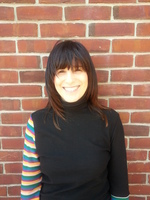
NOTE: THIS ARTICLE WAS ORIGINALLY PUBLISHED IN BINAH MAGAZINE'S COLUMN THERAP:Y A SNEAK PEEK INSIDE
It's seems so strange to write about a social problem that seems so at odds with our community's values.
Elder abuse?
What on earth is that?
When I was in college going for my social work degree, my first internship was in a home care agency. Most of the agency's clients were people who had been discharged from hospitals and rehabilitation centers back to into their homes and needed the home care services to transition from hospital/rehab to home. Most of that transition meant setting up nursing care in the home, with a nurse coming in daily or weekly to administer care or bringing in the various therapies like speech, occupational, and physical.
As a social work intern, I only came into the picture when a nurse—usually the first care provider—noticed that the client was lacking basic needs and put in a referral for a social worker to come in, evaluate the situation, and connect the client to necessary community and/or government services.
And most of of those people were the elderly.
Because for the most part, when a child was discharged from a hospital or rehabilitation center, the child was already part of a system within his parental and sibling structure, school, Chai Lifeline or other supportive organization. Even part of multiple organizations. An adult was similarly part of a multifaceted community structure, within his or her own family of origin, spouse, shul, and extended familial and community support.
But take an elderly adult, somehow, the rules completely changed.
The adult children were busy with their own lives, and either unaware or unable to care for their parent. The spouse of an elderly adult is obviously elderly as well and unable to engage in the physical care of the home and spouse, and this couple, or client, is often isolated from the community, from the block or shul who has forgotten him, from organizations that are more focused on the children and adults caring for children.
So I was called in to assess the needs of this elderly person, asses what community and government resources were available to help, and put those resources into motion whenever possible.
I learned a great deal about what resources can be accessed.
A ramp for a disabled person living in an apartment building, a learning chavrusa, a Bubby-sitter in the form a high school volunteer, free home repairs, free furniture and hot meals delivered daily. Holocaust reparation, free cleaning help, Medicaid, free legal help, free burial, and myriads of other forms of aid to the elderly.
But one of the most powerful tools I learned about was APS, adult protective services.
APS is a program of the HRA, Human Resources Administration, which is more familiar to many as the number to call for Medicaid or Food Stamps.
APS is a state mandated case management program that arranges for services and support for physically and/or mentally impaired adults who are at risk for harm in their homes. The mission of APS is to enable these people to live independently and safely within their homes and communities.
Look it up and you will find out all about APS.
Anyone can call in a report to APS concerning an adult, much in the same way anyone call in to report a child to Child Protective Services (check your state for individual numbers).
And the reasons are often the same.
The adult is being neglected and/or abused by caregivers, whether those caregivers are family members, volunteers, or paid. The abuse can be verbal or physical. Screaming, hitting, threatening to withhold food, human company such as grandchildren or guests, or other needs or wants. Neglect can be evident in areas such as personal hygiene, threadbare clothing, mold in the fridge, or lack of access to the outside. The adult is living in a home which is unsafe. Perhaps unsanitary, as the adult cannot keep the home clean; or, perhaps physically structured so that the elderly person cannot navigate without fear of falling or other injury. Lack of food may be an issue or financial limitations that make the adult unable to pay heating bills or rent. Somebody may be exploiting the adult financially, suspected of stealing from the adult or coercing the adult to part with her money.
No, you are saying. This is not happening in my community. This is not happening to our elderly. Not the sweet Mr. Schwartz in our shul; not the friendly Mrs. Klein on my block.
But yes, it's happening around us.
It's happening in the nicest families.
Sometimes it's happening because the elderly are too proud to tell their children they need help. And the adult children may be too wrapped up in their busy lives caring for single and married children, their own grandchildren, their spouses. Adult children may be part of the problem as they face frustration and limited finances and crotchety, difficult, and aging parents, struggling to keep all the balls in the air and dropping the ones that become suddenly too heavy. Sometimes, there are second marriages and familial conflict that make it hard for children or others to get involved. Sometimes, these elderly people simply become invisible as their world narrows and they are unable to walk outside as easily as they once did, to shop, to attend shul, to engage in chessed or jobs; their spouses dead or prey to dementia or Alzheimer's, their purpose in cooking or cleaning, their reason for getting up in the morning taken away, eaving them floundering in their weakened state unable to reach out.
Add to this mix a fall, a broken hip, a knee replacement, weeks or months in rehabilitation where they are forgotten or shunted to the side while they recover, ,they return home to a world that much more alien than they have left.
APS is the number to call when an elderly person is unsafe in their environment or with the people who are supposed to be caring for him. But sometimes, we can be the APS for our own grandparents, parents, neighbors, shul-goers, or great-aunt whose children live overseas.
There are resources out there for our elderly. And sometimes we are their greatest ones.
My book, Therapy, Shmerapy, can be found in bookstores or online

 Previous
Previous

